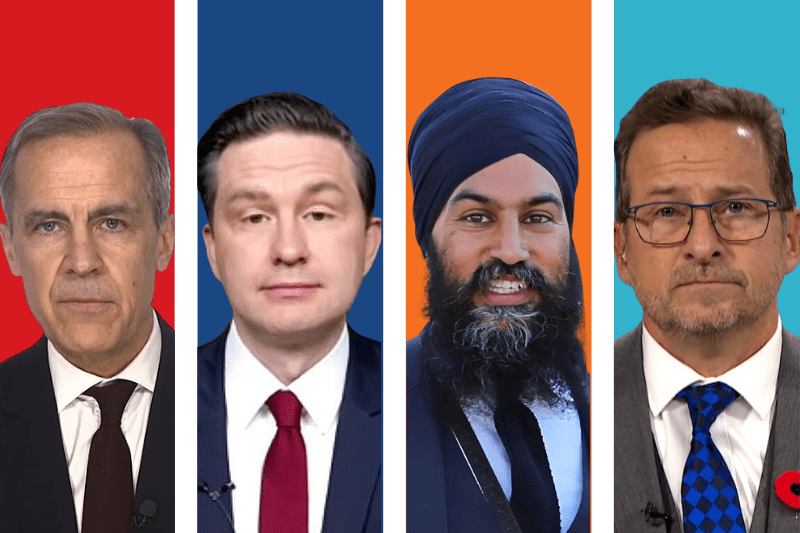428

The national party leaders that took place in the debate. From left: Mark Carney (Liberal), Pierre Poilievre (Conservative), Jagmeet Singh (NDP), and Yves-François Blanchet (Bloc Quebecois).




